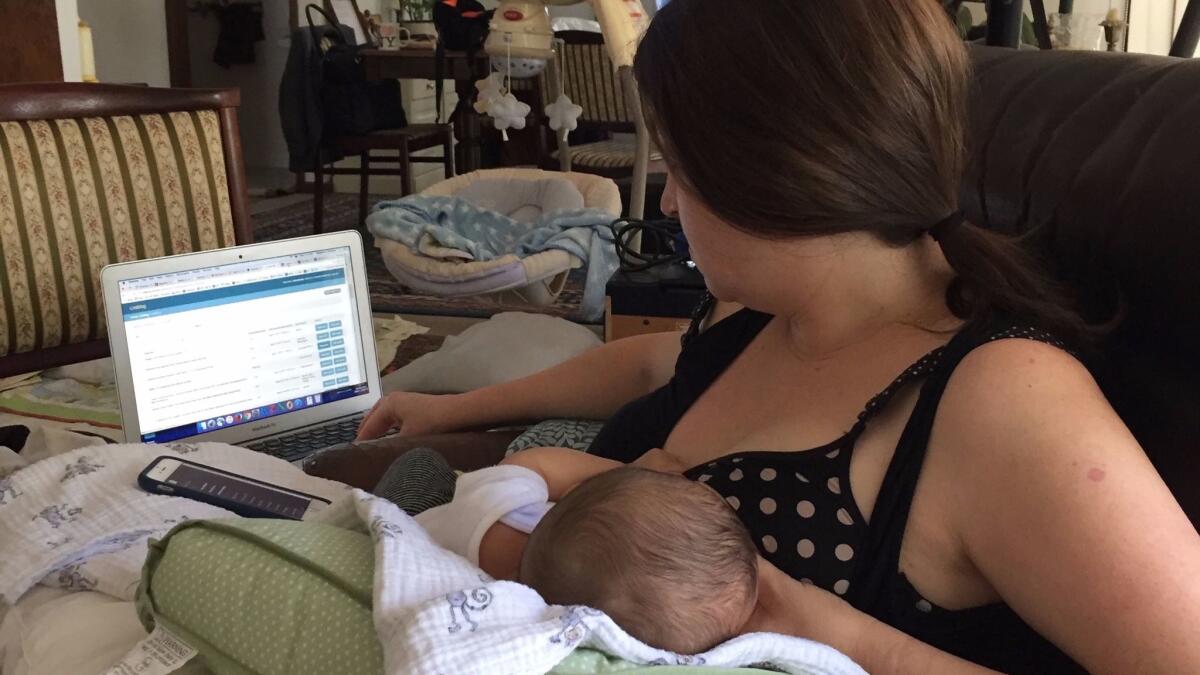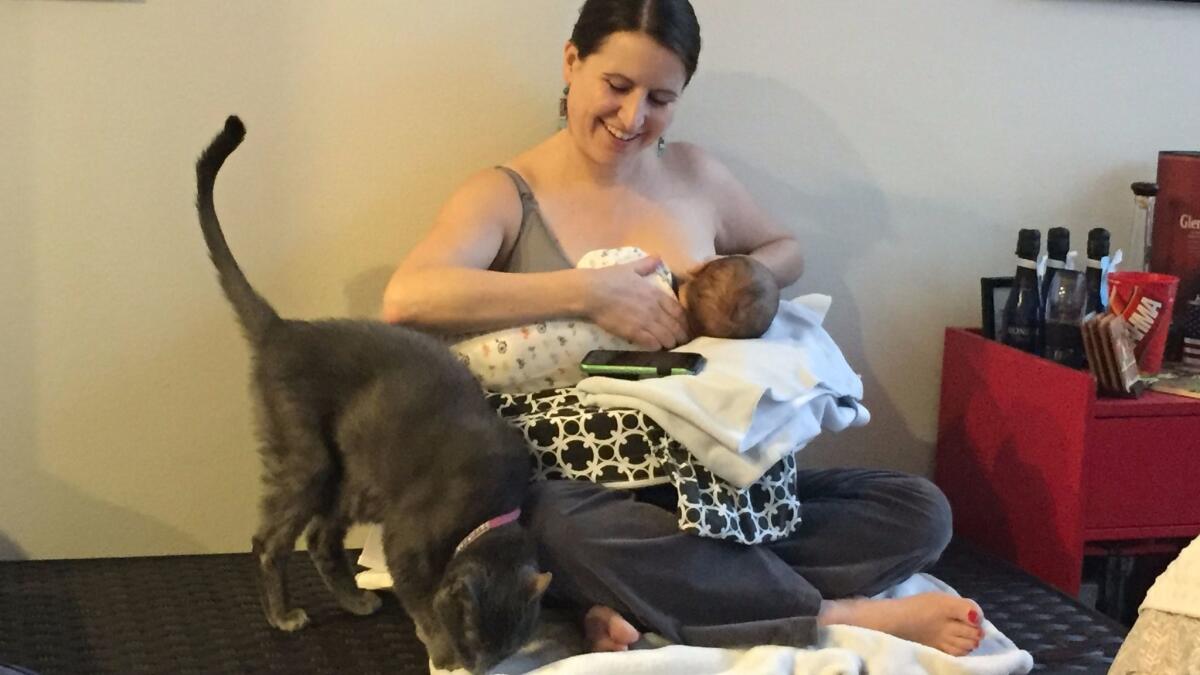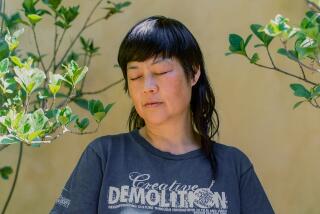Perspective: Breast-feeding while working as a politics editor is hard. Here’s how I survived the last seven months

I had no idea how difficult it would be to breast-feed my newborn son. As a first-time mom, nursing was so hard I started taking notes on my iPhone for a story I wanted to write about how none of the products marketed to make the practice easier were actually practical. It would be a screed on the pumping industrial complex, surely designed by people who had never needed to nourish a baby. I would call it “Stop crying over spilled milk,” and it would help the moms like me and the babies like my son who shed a lot of tears before getting it right.
It was probably the hormones that had me so riled up over ill-fitting nipple shields and pumps with stupid designs, because I let the idea go as time passed and nursing Maxwell became second nature.
The “breast is best” message has returned after formula-filled decades of the not-so-distant past. Breast milk helps build crucial antibodies. Babies are less likely to face obesity, diabetes or other problems. Moms will lose the pregnancy weight easier. In the lead-up to Maxwell’s birth, I learned all of that. I was on board, and my goal was to get to six months of exclusively breast-feeding, even though I would be going back to work after four.
What they didn’t tell me was that I would be starving. All the time. I ate Pop-Tarts at 3 a.m. just to feel like I wasn’t going to pass out.
They didn’t tell me that sometimes it’s a team effort. My endlessly patient husband, Patrick, with the latch assist. Nurses in the hospital assessing my milk production. Lactation consultants describing the various holds and pillows, none of which felt quite right. Friends, and even my mother-in-law, got up close and personal with my nipples.
They didn’t tell me that you are better off remaining topless during the hardest part. (You try entertaining visitors without a shirt on.) Anything that touched my body hurt. They told me after six weeks it would be a breeze. It was more than two months before the pain eased.
And then nursing was fine. Wonderful, even. Knowing my son was healthy and growing thanks to me was a new sort of fulfillment. It was the whole storing extra breast milk so I could go back to work thing that was most difficult.
Most of my pumping was in the dark of night, after Maxwell had fallen back asleep. Headphones and Netflix became my best friends as I endured the unpleasant, sometimes hour-long process. We carefully saved every fraction of an ounce we could. The occasional spill had me back in tears.
In the heat of it all, I invented things in my mind like a baby’s mouth-shaped pump so it would feel less like you were hooked up to farm-grade milking machinery, a straw-shaped device to capture those drops that just won’t come out of the tube and mix-and-match parts for the women like me whose full breasts were lopsided because my son favored one over the other.
Pumping at work sucks, pardon the pun. I’m actually very lucky — many of my female colleagues not so many years ago were stuck pumping in bathrooms, or attempting to find privacy. As an editor, I am mostly in the office, not out reporting stories, which presents a new set of challenges.
There’s a private nursing room with a fridge I can use, and women who have come before me have posted pictures of their adorable little ones on a bulletin board.
When I first got back to work, I configured my office to drop the blinds and open a curtain so no one could see in when I pumped twice a day. I needed a sign, so I printed an apology under a photo of a baby bottle. (My mom demanded I redo it: “Why are you ‘sorry’?” The new sign just asks people to find me via Slack or email because I am unavailable.)
I blocked off two 45-minute increments on my calendar to protect pumping time. That became unrealistic pretty quickly, so I’m down to once in the early afternoon.
Looking at photos and videos of Maxwell while pumping helps, but I never get as much milk as I know is in there because I’m juggling editing duties and conference calls, and it’s hard not to be distracted by the fact the newsroom is right out there, just a few feet from my closed door.
In typical journalist morbid humor, I frequently envision a massive earthquake striking just as I’ve got 2 ounces hanging from the bottle attached to my breast. I play out the scenario in my mind. Would I detach, put my shirt back on and run out? Duck and cover and hope for the best? Most importantly, would I take the time to save the milk?

Who am I kidding? Of course I would. Every drop matters.
I’ve realized recently there’s no real guidebook for what happens next.
Some moms are only able to keep it up a few weeks. Others have so much milk they are giving it to a donor bank for preemies. I have friends who nursed their children into their toddler years. (Melinda Gates recently penned a thought-provoking piece on this topic.)
I wanted to get to six months, and now I’ve stretched past seven.
We tried organic formula a few times to supplement. My kid didn’t poop for a week. The pediatrician said that’s common. Back to the boob.
A few months ago, the power went out in our condo complex as we were about to head out of town for a long weekend. All I could think about was how devastated I’d be if I lost my frozen supply of pumped milk, nicely lined out and labeled by date for use when I returned to work.
I have been back since May, and we are down to a scant five 5-ounce bags left in our freezer. I just can’t pump as much from the office as Maxwell drinks during the day when I’m gone. I’m not great at math, but I realize my son’s days of breast milk bottles are numbered.
I suppose my body will naturally change and my son will adjust to formula during the day. I haven’t found the right book to help me with that transition, so I’m pretty sure, like breast-feeding to begin with, our family will figure it out together.
ALSO:
For babies, breast-feeding is still best, even if it doesn’t make them smarter (though it might)
Opinion: Breast milk is best and free, so why is it a luxury for American moms?
Subscribe to the Essential Politics newsletter







